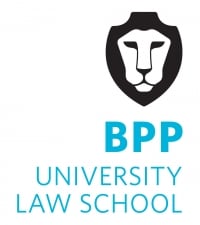
BPP Law School has launched a new video series entitled ‘Tech Talks’. The two-minute-long videos explain various technological concepts, and have been designed to be a valuable resource for law students and lawyers looking to gain foundation level knowledge in new technologies, and understand how such developments apply to the legal sphere.
The series – developed by BPP Head of Innovation Technology Adam Curphey – has, so far, explained Blockchain and Artificial Intelligence, and future episodes will detail the workings of Robotic Process Automation and augmented and virtual realities. “BPP University intends to continue upskilling new entrants to the profession and we hope these talks equip students with vital knowledge about current and future legal technology trends and processes” says Curphey.
The concise videos explain complex concepts in an accessible manner, with each video covering the basics: ‘What is it?’, ‘How does it work?’ and ‘What is its legal application?’ Curphey explains that “Historically, legal language was so complex that no lay person could hope to understand it. That is less the case now, and much work has been done to simplify the practice of law and increase access to justice. These videos are performing the same job with technology: taking complex technological concepts and explaining them in a way that – hopefully – anyone can understand.”
The explanatory videos have been well received by those in the legal industry, with Alex Smith, Innovation Manager at Reed Smith saying, “There is a lot of (marketing) led confusion in the market on what technologies do what and how they will impact legal practice. These BPP Two Minute Tech Talks cut through the noise and provide quick and pragmatic views of where certain technologies are at and how they are being used at the coalface. This is important to focus future lawyers on how practice is evolving and the importance of humans in these processes and the value of legal knowledge & expertise.”
BPP’s ‘Tech Talks’ is just one of a number of initiatives set up by the university to address the demand for students and industry professionals to be better equipped with the technical knowledge required to keep pace with the constant advancements in technology. Indeed, the university is also set to offer a new Legal Innovation and Design Module to its students (subject to validation), and recently hosted the Future Lawyers’ Innovation Conference, which attracted over 1,500 viewers to the online stream in addition to those present in person.
The increasing focus by law schools and law firms on technology shows just how seriously they anticipate it changing the provision of legal services and impacting the businesses of their clients.

